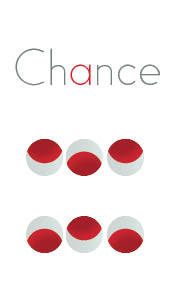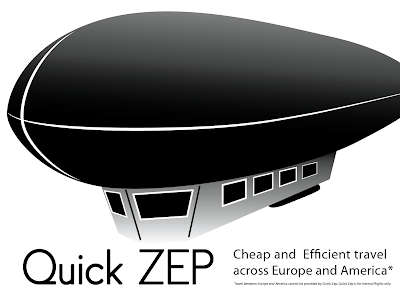Chris Steel - UEL Design and Print
Thursday, 2 May 2013
In the Negative - Fever Dreams Project
16mm film project around the ideas of fever dreams and the surrealness that goes along with the history of black & white 16mm films.
Sunday, 31 March 2013
My camera work in the public domain
"The Eternal Man" - Trailer for a 20 minute short dealing with issues of immortality and love.
On vimeo
A short promotional video for "Take a Challenge"
An Interview for LifeLine Projects
Metropolis - Tokyo
On vimeo
A short promotional video for "Take a Challenge"
An Interview for LifeLine Projects
Metropolis - Tokyo
Thursday, 28 February 2013
16mm film project - Fever Dreams
There's an old myth that indigenous people and tribes thought that cameras captured a piece of your soul when your photograph was taken. What happens to that piece when it's in the camera? What does it do? Can it escape?
A light comes on, revealing a person standing before us.
The light sweeps around the person,
coming to rest at the feet of the person.
The person becomes conscious and looks around.
The person then walks off frame, only to return on the other side.
The person turns away, raising their hands to explore the dark surface behind them.
They push it away and we fly backwards away from the person, making them blurry.
...
The person stretches out their arms as if just waking up.
The void gets lighter as their arms get higher
The person notices the increasing brightness of the void behind them.
The person suddenly drops their arms and with that motion, the lights cut out.
The persons glowing hand emerges from the darkness.
The person raises their hand and explores it's movements.
The person touches their face with their glowing hand, leaving the face also glowing.
The person proceeds to paint their body with their glowing hand
The person reaches through the darkness covering them and tears it away.
The person now glowing completely begins raising their arms
As light grows, the person relaxes
With arms fully raised, the person is lost in the light of the void
Saturday, 23 February 2013
Monday, 11 February 2013
Monday, 4 February 2013
Film making - Essential websites
Let's start with a video made by IndyMogul. A group of film makers on youtube dedicated to the bettering of their peers. They don't claim to be the best but what they have learned, they share. A great resource for new indy and budget film makers.
cheesycam has a wealth of DIY gear tutorials and cheap gear finds. Their posts cover almost all areas of film making, so be sure to look out for posts about audio too.
Can't afford the cheesycam builds? want a familiar and friendly face to teach you how to make things? I've got two people for you: Knoptop (aka Dave) and FrugalFilmMaker (aka Scott). Knoptop has sporadic (and often humorous) tips and tricks videos. Scott regularly puts out Q&A videos regarding things like his site, builds and general video news. Scott also has a regular series for $1 budget gear he finds (very useful as it often has things you wouldn't even have thought of, like doorstops)
dslrfilmnoob (aka DeeJay) makes really high quality 'news and reviews' posts, making sure to go into as much detail as he can. It is quite common for him to make follow up posts detailing any changes, solutions or problems he finds. He also has a few small products he makes in batches, like the zoomH1 shock mount.
Dave Dugdale is your guide through starting in the dslr film industry. From amateur to semi-pro, Dave brings you along with honest and level headed videos showing his progress and teaching you things as he finds them out himself.
Though FStoppers is primarily a photography blog, it has many behind the scenes (BTS) videos and compiled tutorials that can aid any camera operator (whether still or video)
FilmRiot has been running for quite a while now. Aspiring and talented film maker Ryan Connolly brings regular tips, tricks and techniques from Hollywood with a good dose of humour and production value. The film Riot monday challenge is a great community for new and experienced film makers with weekly or monthly challenges requiring a specific technique or style.
Now for the heavy weights; FreddieW (aka Freddie Wong and Brandon) and CorridorDigital (aka Sam and Niko). Four friends in LA making some of the best content on youtube with their recent web-series' (VGHS and SYNC respectively). Special effects, guns, games and behind the scenes on almost all of it.
I think that list should keep you occupied for a while. The worrying part is, I can go on.
Tuesday, 15 January 2013
New Kowloon - The Floating City (wip)
When the Pacific eco system failed, the fishermen were out of work. With no income and no new jobs, their boats were all they had. Many had to live on their boats when the banks took their houses. The ones lucky enough to keep their houses, sold their boats.
US Courts ruled that ports were not residential and kicked the ex-fishermen out to sea where they met the drifting Chinese and Japanese boats in the same situation. Many small clusters formed around the brand new wind farms off the coast of florida with a few entrepreneurs taking boats out to them with food and other essentials. Red cross gave sparse handouts and the US put their nationals on unemployment benefits.
The economic crash that followed stumped tourism in the pacific and across America leading to cruise liner companies to go bust or reduce the size of their fleet. Some were stolen before they could be taken apart for scrap, others sold to 'investors' who rented space onboard to the growing numbers of mortgage defaulters. Some small clusters became towns made up of old oil tankers (now defunct due to depleted off shore reservoirs) and cruise liners.
As the US and Japanese economies strengthened again and more jobs became available, many of the small clusters dissipated back to land. A few floating towns however grew in size as the few boats left behind in small clusters had to join onto other larger clusters in order to receive food and benefits.
These floating towns were self policed and generally un-governed. Boats came and went with no checks. Crime was common but rarely seriose. The areas were so close knit and cramped that violence rarely escalated to deaths. The few cases where it did, the perpetrator was executed by the self appointed police who had the best of intentions but were not by any means incorruptible.
As time went on the floating towns merged into bigger communities of ships. An infrastructure of inports was made, power distributed and high-speed internet connected. Through the growth of the towns, jobs were made to support the communities and a leadership emerged.
These floating towns were a safe heaven for political dissidents and morally questionable businesses. It was rumoured that many of the larger ships had their lower decks converted into server rooms by the chinese government to attack it's enemies servers. There was no evidence that it was Chinese or even agressive but this was largely true. The main source of these servers was from middle class activists hackers and the, now mythical, Anon.
By 2087 it was evident that Anon ruled the largest cluster of ships known as New Kowloon. Anon brought justice and order to the city, even if their methods were questionable...
Monday, 7 January 2013
A collection of sketches
Quick ZEP advertising development
Sling Shot tours advertising ideas
ARK Branding
Denton Industries Logo
Wednesday, 21 November 2012
Kowloon City
A documentary in german about the walled city of Kowloon outside Hong Kong, China.
Torn down in 1993, the last relics of this city are few and far between. few documentaries were made about Kowloon City and fewer got cameras inside (I can't confirm how many, I've found but one so far).
Saturday, 3 November 2012
Building buildings
An idea of what sort of building might become more common in 2100
Suburban homes on stilts to protect from flooding with built in greenhouses for small crops.
Stacked housing with large solar panels and wind turbines.
Roofing of one floor becomes a shared crop garden.
The pyramid structure is very strong making the building earthquake proof.
Half pyramid, half tower block. Large crop areas on lower roofs. Wind and solar on the top roof.
Tapered octagonal tower built to resist extreme winds and earthquakes.
In my constructed future, the world has only gotten more hostile. Buildings have to become stronger and more self relient. Space has become more of a commodity but growing food for yourself is a necessity for many due to low income and rising food costs, so the garden has to occupy less space.
Subscribe to:
Comments (Atom)


















































